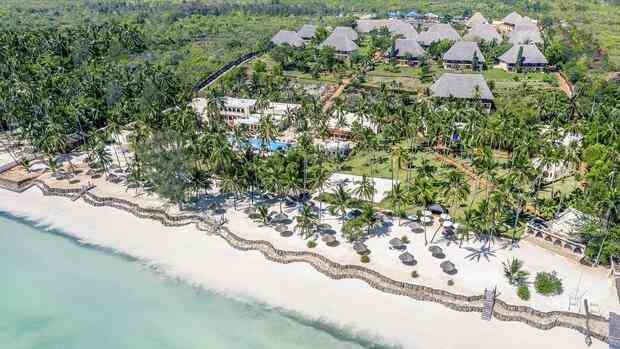Frankfurt The travel group Tui is still struggling with the consequences of the pandemic – for example on the debt side. However, the management does not want to let this stop it from growing. The number of hotels under the Tui Blue brand should increase significantly. In industry circles there is talk of up to 300 houses. There are currently around 100 Blue Hotels in 19 countries.
“We have already signed contracts for 13 new hotels, five of which will be added this summer, the remaining eight in the following years,” said Erik Friemuth, Managing Director Tui Hotels & Resorts, the Handelsblatt. Further growth is planned, but he did not name a specific target.
The management has set up scouting teams in Dubai and Hong Kong, which are on the lookout for other hotels. The main thing is to find suitable hotel partners who then work closely with Tui to market their hotel and also take over the Blue brand. “We don’t have enough capital to be able to leverage the potential in the market through ownership or leasing,” said Friemuth: “That’s why we want to grow through international partnerships.”
The group has bundled a total of 418 hotels under the Tui Hotels & Resorts division. There are hotels for private travelers and tourists. These include houses from joint venture partners such as Riu or Atlantica, which are not owned by the group. There are also own brands such as Tui Blue, Robinson, Tui Magic Life or Tui Suneo.
Some of the houses belong to the company, some are also third-party hotels. According to Tui, Blue is aimed at experience-oriented individual travelers and has a regional focus, i.e. there should be no chain feeling.
>> Read also: Tui reports strong travel demand – More and more holidaymakers are booking all-inclusive
Tui has been pursuing the so-called “Asset Right Strategy” for several years. In order to be able to offer customers a suitable hotel, for example, the company does not have to own it. Hotels and other assets were given to partners, which relieves the balance sheet.
Tui is looking for hotel partners for the planned growth
This model helped the company – in addition to state aid of 4.3 billion euros – to survive the pandemic. In May 2021, Tui sold a real estate portfolio with 21 properties to its partner Riu, but will continue to manage the hotels together with them.
Tui was able to reduce net debt in the past fiscal year (as of the end of September 2022) from around five to 3.4 billion euros. But the value is still above the internal targets. In order to strengthen the balance sheet, the company reduced the capital a few days ago, turning ten shares into one. This in turn has created the conditions for a capital increase on the markets, which should bring in 1.8 billion euros.
The group continues to be closely monitored by analysts. Jefferies’ James Wheatcroft sees signs of improving bookings, but also balance sheet risks. That is why the Tui leadership around CEO Sebastian Ebel continues to rely on strict liquidity management.
This also applies to the planned expansion of the Tui Blue brand. Most of the new hotels are either managed by the group or operated through franchises. Here the hotel owner remains responsible for the operation of his hotel. Tui wants to use this strategy to open up new markets. Some of the future hotels are in China, Senegal, Cambodia and Curaçao – destinations that the company did not previously have in its hotel portfolio.
Tui issues stricter requirements for sustainability
With these partnerships, however, the management has to take a close look so that customers also get what they expect from the Blue brand. The third-party hotels are often medium-sized companies with limited resources.
Tui supports them in the modernization. “We help them, for example, by providing a digital front office with which the processes can be digitized and customers can book the offers via the app,” says Friemuth, describing the procedure.
>> Read also: New Tui boss relies on individual package trips – with flat-rate customer protection
At the same time, there are now strict guidelines when it comes to sustainability. This involves, for example, avoiding plastic or supplying the hotels with photovoltaics. The management recently defined new climate targets. In the hotel sector, emissions are to be reduced by at least 46.2 percent by 2030.
The hotel partners must also meet these requirements, which is a challenge given the limited financial resources of many hotel owners. Here, too, Tui promises help. “Especially in hotels, the topic of sustainability can be integrated very well,” says Friemuth, confident of being able to achieve the goals. There is no alternative anyway: “Customers are asking more and more often whether the hotel has the relevant certificates, for example.”
More: Last minute is becoming obsolete for vacationers.
